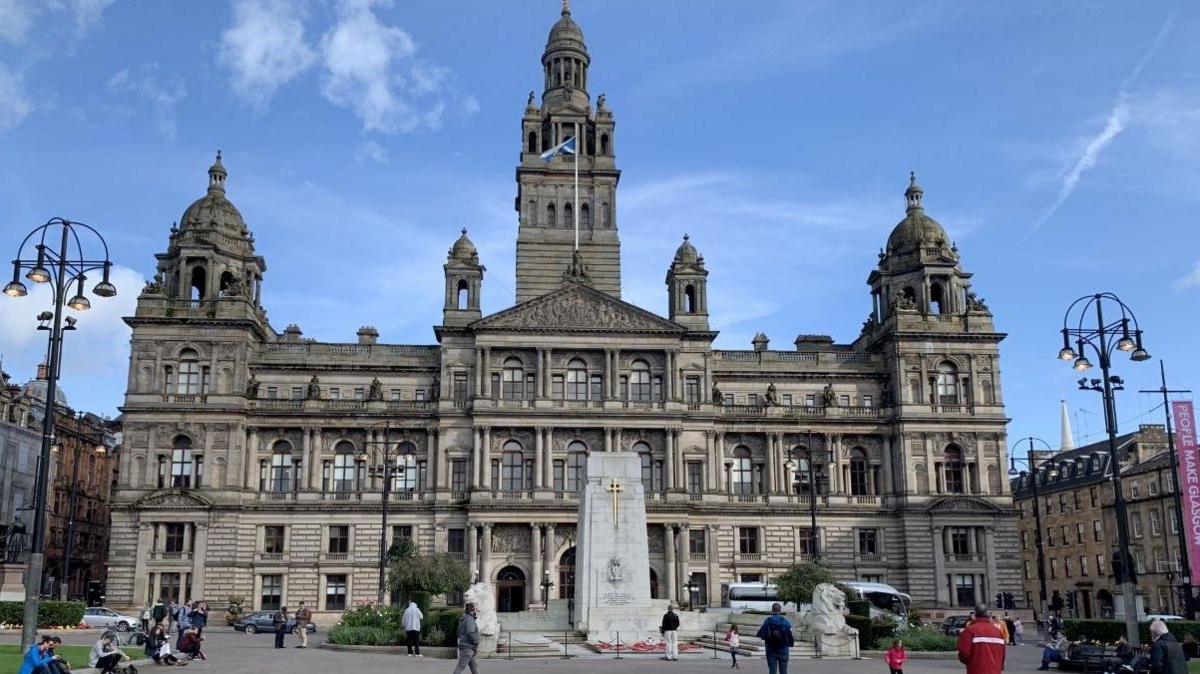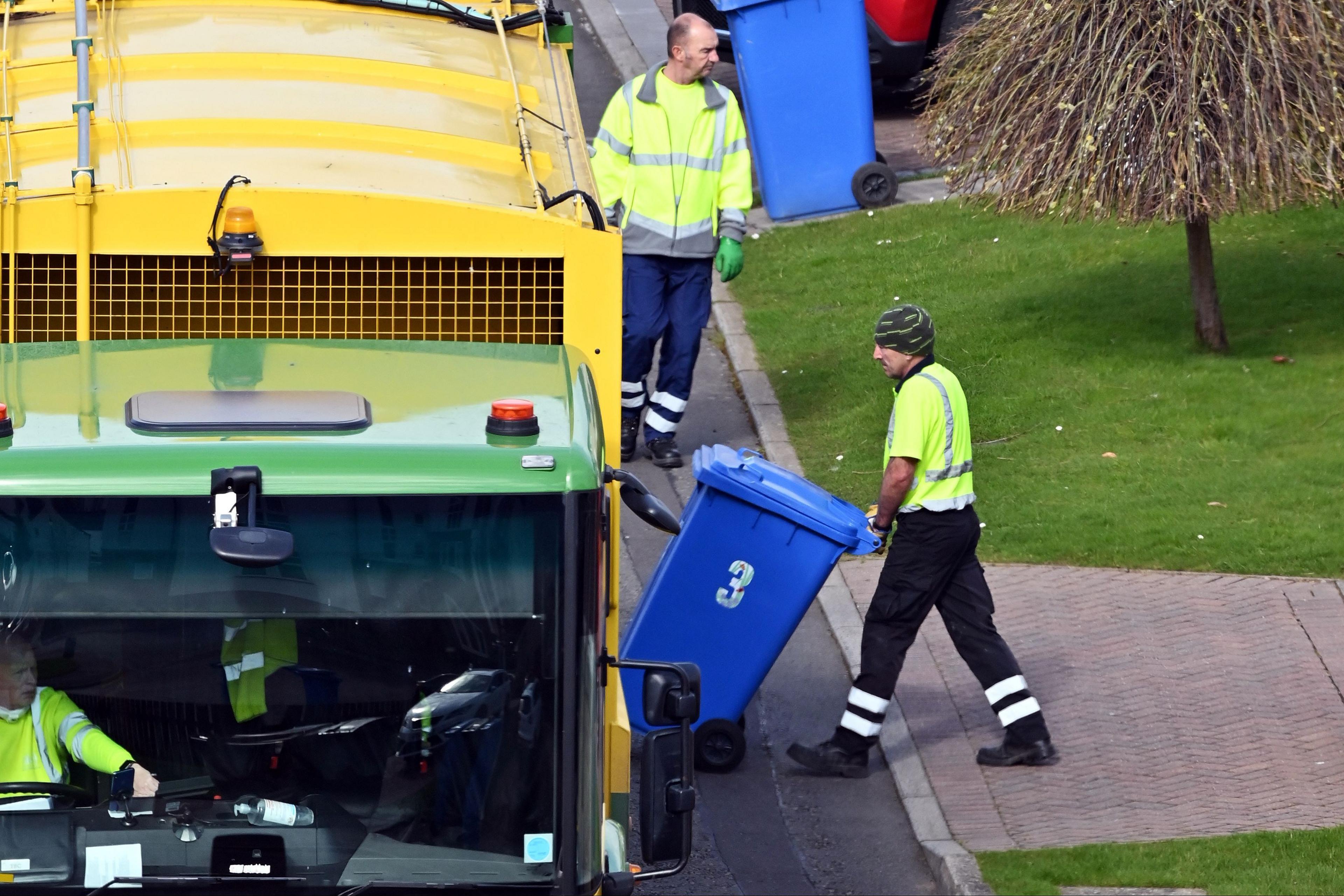Councils vote to freeze tax rates

Councillors in Glasgow backed the SNP budget at Thursday's meeting
- Published
Glasgow City Council and North Lanarkshire Council have voted to freeze council tax for the coming year.
The budgets were approved after councillors at the respective local authorities met to discuss budgets for the next three years.
Other councils will discuss their budgets in the coming weeks, with some actively considering council tax rises.
The freeze was unexpectedly announced as SNP policy by the first minister at the party's conference last October, taking councils by surprise.
The Scottish government has warned councils they will not receive money to cover a freeze if they opt to increase the tax.
Cosla declares 'dispute' with ministers over funds
- Published14 February 2024
Humza Yousaf announces Scottish council tax freeze
- Published17 October 2023
Earlier this month the finance secretary, Shona Robison - who is also the deputy first minister - asked all of Scotland's 32 councils to confirm their intentions on the council tax freeze by Friday.
However, the budget processes of many councils are expected to continue beyond this point.
Local authorities across Scotland have been offered £144m in compensation for the SNP's council tax freeze policy, though the umbrella body for local governments, Cosla, said this was not enough.
Plans outlined in Glasgow's budget include:
New parking charges
10p rise in school meal charges in secondary schools
Increased charges for uplifting white goods
Review of school libraries and cleaning services to save £300,000 by 2026/27
A one-off £1.7m investment towards bringing empty properties and heritage buildings back into use
The city's budget was passed after a deal between the SNP and Green groups on the council.
Unions have protested against planned budget cuts to services in the city, saying they are already "on their knees".
SNP council leader Susan Aitken backed the freeze.
She said: "We don't have the powers in Scotland just now to address rampant inflation and mortgage rates.
"But we can choose not to pass an increase in this particular bill on to our residents during a tough time, even as we continue to argue for fundamental reform in local taxation."
Drafting the budget had meant "facing some tough decisions head on", she said.
Labour councillor Jill Brown said her party was accepting the freeze too.
She said: "In a state where our citizens are suffering from a cost-of-living crisis it is the only option available."
However, she said the SNP/Green government at Holyrood had passed on "drastic cuts" to the local authority.
A report from officials said there was a £107.7 million spending gap over the next three years following the latest settlement from Holyrood.

Meanwhile, the leader of North Lanarkshire Council (NLC) said it was having to "do the best it can" with the Scottish government settlement.
Cllr Jim Logue, of Scottish Labour, claimed the local authority would receive £2m less than originally expected from Holyrood.
He said the freeze had been agreed by the Labour-controlled council in order to prevent passing on a larger rise to make up for a budget shortfall to residents.
He said: “Again, we find ourselves in a position of having to do the best we can with a wholly unsatisfactory settlement from the Scottish government."
Cllr Logue said NLC had frozen rates to prevent resident having to bear a rise greater than 5% "to make up the sum the government would withhold from the council".
He said this did not respect local decision-making.
The council also agreed service savings of over £6m, including:
Charging 100% council tax for second homes
Removing free food waste bags
Increasing the fine for a parking ticket to £100 (£50 if paid within 14 days)
Charging £30 to replace recycling bins
A Scottish government spokesman said: "The deputy first minister wrote to councils to ask for confirmation of their intentions on the council tax freeze by 16 February to inform stage two of the Scottish Budget.
"Ministers recognise that by that date, councils may still be finalising their council tax intentions and those will be subject to confirmation at council budget meetings in February and March."